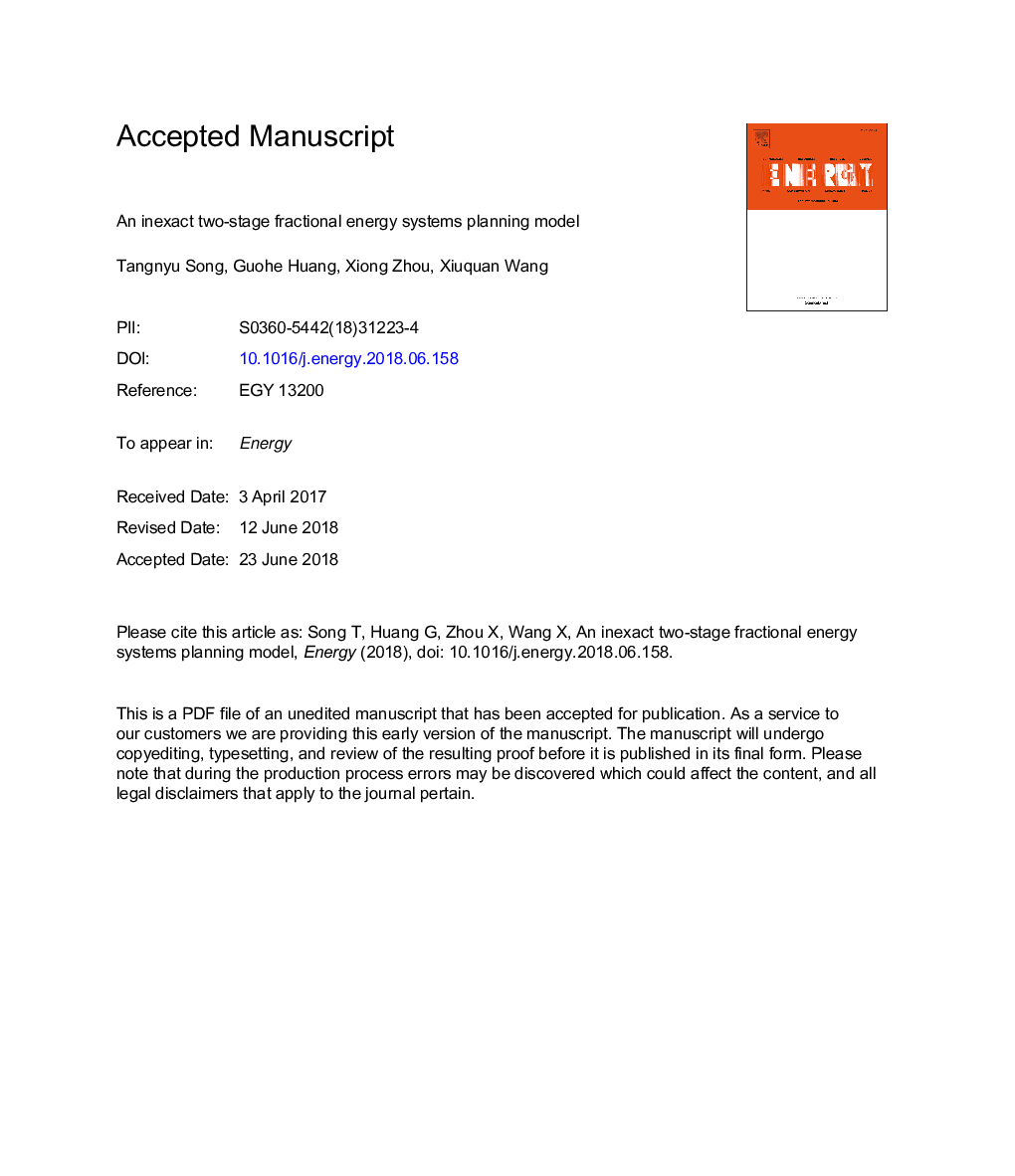| Article ID | Journal | Published Year | Pages | File Type |
|---|---|---|---|---|
| 8070951 | Energy | 2018 | 45 Pages |
Abstract
In this study, an inexact two-stage fractional energy systems planning model (ITF-ESP) is developed through an integration of interval-parameter programming (IPP), two-stage stochastic programming (TSP), fractional programming (FP), and mixed integer linear programming (MILP) methods. Since the proposed model could not be solved directly, it is converted into two interactive sub-models. In order to obtain more precise interval solutions, the sub-model corresponding to fâis solved first. The developed ITF-ESP model is considered as an efficient approach to address dual-objective optimization problems involving capacity expansion issues and policy scenario analysis, as well as uncertainties described as intervals and probability distributions. Effectiveness of the ITF-ESP model is demonstrated through a case study within a Chinese context. The results indicate that although the non-renewable technologies would still play a major role in electricity generation, the renewable technologies are becoming increasingly significant. Comparisons of the ITF-ESP model and the least-cost model are conducted to illustrate the advantages of the proposed ITF-ESP model in reflecting trade-offs between economic development and environmental protection. In addition, compared with the chance-constrained two-stage fractional optimization model (CTFO), interval solutions obtained from the ITF-ESP model can provide multiple alternative management plans in terms of electricity generation and capacity expansion.
Related Topics
Physical Sciences and Engineering
Energy
Energy (General)
Authors
Tangnyu Song, Guohe Huang, Xiong Zhou, Xiuquan Wang,
